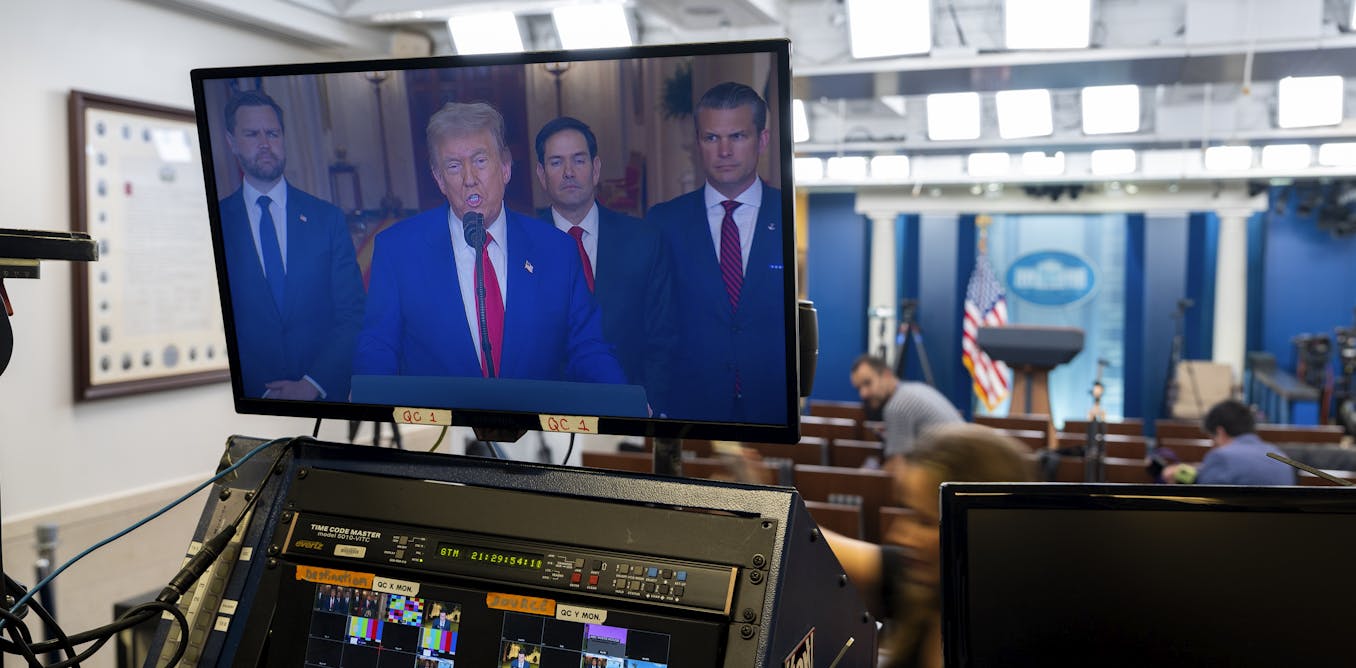When Donald Trump ordered the US military to bomb Iran’s nuclear facilities over the weekend, the debate among intelligence officials, outside experts and policymakers over the status of Tehran’s nuclear program had largely been frozen in place for nearly 20 years.
That prolonged debate has repeatedly placed the relatively dovish US intelligence community at odds with Israel and neoconservative Iran hawks ever since the height of the global war on terror.
For nearly two decades, the US intelligence agencies have concluded that while Iran has a program to enrich uranium, it has never actually built any atomic bombs. It is an assessment that has been at the core of its intelligence reporting on Iran since at least 2007. This has led to constant debates over the years over the significance of Iran’s uranium enrichment program versus “weaponization” or bomb-building.
Israel and the Iran hawks have repeatedly said that the debate over enrichment versus weaponization is not significant, because Iran could build a bomb relatively quickly. But Iran suspended its weaponization program in 2003 and hasn’t tried to build a bomb since; it’s been clear for decades that the Iranian regime has seen that its own interests are better served by maintaining the threat of having a nuclear weapon rather than actually having one.
Iran’s reluctance to build a bomb while still maintaining the threat of a nuclear program has clear parallels with the way that Iraqi dictator Saddam Hussein handled his supposed weapons of mass destruction program. Hussein got rid of his programs to develop nuclear, chemical and biological weapons in the 1990s, following the first Gulf War, but never divulged that to the United States or the United Nations.
He wanted other countries, particularly his regional enemy Iran, to think that he still had the weapons. US officials couldn’t understand that kind of thinking, and so badly miscalculated by assuming that Hussein still had a WMD program. That mindset led to the intelligence community’s greatest debacle – its false pre-war reporting that Hussen still had a WMD program, flawed intelligence which helped the George W Bush administration justify the 2003 invasion of Iraq.
In the past, the US intelligence community’s assessments on the state of the Iranian nuclear program – developed in the aftermath of its failures on the Iraqi WMD issue – acted as a restraint on the actions of successive presidents, from Bush through Obama and Biden. All of them faced pressure from Israel to take action against Iran, or at least to let Israel bomb the country.
The difference today is not that the intelligence reporting has significantly changed.
It is that Trump is now more willing to listen to Israel than his predecessors and is also deeply suspicious of the Central Intelligence Agency. And by firing so many staffers at the National Security Council and conducting an ideological purge throughout the rest of the national security community since he returned to office, Trump has made it clear that he is not interested in listening to the experts on Iran and the Middle East. Trump underscored his skepticism of the experts when he recently told reporters that “I don’t care” about the US intelligence community’s latest assessment that Iran still wasn’t building a bomb.
Without any evidence that Iran has actually been “weaponizing”, the arguments over Iran’s nuclear program have descended over the last two decades into a series of almost theological disputes over the significance of each change in the Iranian uranium enrichment program.
This debate first flared into the headlines in 2007, at a time when the Bush administration – already mired in wars in both Iraq and Afghanistan – was considering bombing Iran to halt its nuclear program. In the midst of this debate, the key findings of the 2007 National Intelligence Estimate on Iran’s nuclear program were made public. The NIE – a report designed to provide the consensus view of the US’s 18 spy agencies on a major subject – found that Iran had halted its nuclear weapons program in 2003 and had never built a bomb. While it found that Iran could still develop a bomb by 2010, it determined that its commercial nuclear fuel cycle – its enrichment program – was not part of an ongoing nuclear weapons program.
In 2011, the findings of another NIE were made public, which slightly altered the intelligence community’s assessment. It said that Iran’s uranium enrichment program was probably being upgraded and could eventually be used to create weapons grade uranium. But the NIE also found that Iran had still not tried to build a bomb. The 2011 NIE broke with the 2007 NIE by not making a distinction between Iran’s uranium enrichment for commercial purposes and potential nuclear weapons work. Still, the new NIE found that there was not enough evidence to show that Iran had made a decision to restart its nuclear weaponization program and build a bomb.
after newsletter promotion
Today, the US intelligence community is still basically in the same place: Iran has an enrichment program but has not built a bomb. Tulsi Gabbard, the director of national intelligence, testified to Congress in March that while Iran’s stockpile of enriched uranium was at its highest levels, the intelligence community “continues to assess that Iran is not building a nuclear weapon and [Iran’s] supreme leader Khamenei has not authorized the nuclear weapons program that he suspended in 2003”.
(After Trump ordered the Iran bombing, Gabbard rushed to defend his actions, even though there had still been no change in the intelligence agencies’ assessments.)
And while Israel and the hawks continue today to insist that Iran could build a bomb quickly, the US intelligence community has long maintained that it could detect the effort in its earliest stages, long before it succeeded.
After the weekend strike, Congressional Democrats focused on the fact that there was no new intelligence to justify Trump’s action, and no new intelligence showing an imminent threat to the United States.
Senator Mark Warner, a Democrat from Virginia and the ranking Democrat on the Senate intelligence committee, said Trump had bombed Iran “without regard to the consistent conclusions of the intelligence community”.

 German (DE)
German (DE)  English (US)
English (US)  Spanish (ES)
Spanish (ES)  French (FR)
French (FR)  Hindi (IN)
Hindi (IN)  Italian (IT)
Italian (IT)  Russian (RU)
Russian (RU)  7 hours ago
7 hours ago
























Comments